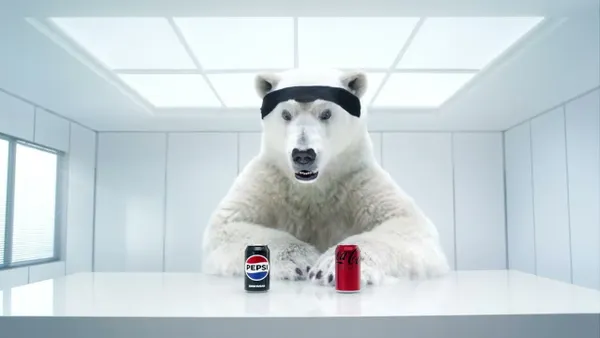Brief:
-
Chatbots, the computer programs that simulate human conversation, are used by one out of four consumers each day on average, while about 40% of millennials say they interact with a bot daily, according to a study by 3Cinteractive, a provider of mobile marketing services.
-
However, consumers had trouble identifying the value of chatbots, with 71% of survey respondents saying a bot couldn't answer a question or help them. People most prefer a chatbot over a human when they're checking order status or doing product research, the survey said.
-
Consumers preferred humans over chatbots in handling interactions such as customer service inquiries and for making an appointment or reservation. Eighty-three percent of respondents said they would be more loyal to a brand for offering a chatbot that enables these tasks.
Insight:
Chatbots are becoming a more familiar way for people to interact with brands, with younger generations more comfortable with the technology even as it sometimes proves frustrating, as 3Cinteractive found in its survey of 500 households. Companies and brands foresee the possibility of significant cost savings by improving customer service with scripted algorithms delivered via chatbots. While recent data are sketchy, a 2013 report found that U.S. organizations spend $112 billion on contact center labor and technology a year, but half of 270 billion incoming customer service calls go unresolved, resulting in $41 billion in losses. That's a major incentive for companies to invest more heavily in chatbot technology, which can help to reduce customer service costs by 30%, according to one report.
Capital One, the 10th-biggest bank in the U.S. with $349 billion in assets, is developing a chatbot named Eno that will be released later this year, The Wall Street Journal reported. The AI-powered digital assistant aims to help customers track account balances, get payment due dates, check recent transactions and pay credit cards. The service is in pilot mode now to respond to SMS text messages without downloading an app. The bank is the latest company to build a virtual assistant. Last year, Mastercard announced that its AI-powered bot, Kai, would allow customers to transact and manage finances through messaging platforms. Bank of America this year will roll out a digital assistant named Erica that will chat with consumers by voice or text message in the bank's mobile app.
Facebook Messenger chief David Marcus said there are 100,000 bots on the messaging service, up from 33,000 in September, at the social network's F8 developer conference in April. He said 20 million businesses are fielding customer questions in Messenger. Although chatbots are multiplying, they're still not exactly pervasive. Forrester Research found just 4% of companies have launched chatbots, and another 31% percent plan to implement them. Limitations of the technology are holding back their use. Google, which recognizes the need to improve chatbots and artificial intelligence, this month started to push its People + AI Research Initiative to advance the development of "people-centric" AI systems that address the technology's hiccups.












